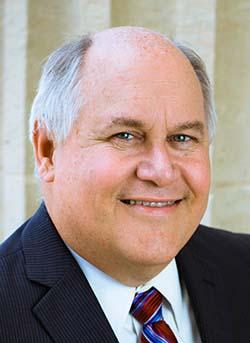Good morning:
The week ended in a news explosion with a major Supreme Court decision on education and perhaps a more significant ruling that tossed out the state cap on noneconomic damages, which is predicted to change the landscape for personal injury law in Kansas. Here’s the best of what we published last week and a look at what you might have missed but need to know.
- Missouri megadonor fighting a Show-Me State abortion law is backing Jake LaTurner in Kansas U.S. Senate race.
- Kansas Supreme Court strikes down noneconomic damages in personal injury lawsuits.
- Supreme Court upholds new school finance plan.
- Former Kansas House candidate asks Supreme Court to order Legislature to provide better services for people who are deaf and hard of hearing.
- American Civil Liberties Union files lawsuit over buffer zone at polling places that’s intended to prevent electioneering but that it says limits free speech.
- Missouri Gov. Mike Parson signs bill intended to stop businesses from using tax incentives to border jump. Kansas governor expects to sign an executive order following suit.
- Democratic Party ends lawsuit with ousted secretary.
Now onto other news:
Lottery vending machines
The Kansas Lottery is ramping up for deploying ticket vending machines across the state in the next couple of weeks.
The lottery plans to distribute 272 vending machines in phases after testing is complete and some final administrative matters are tied up.
The lottery expects to start with a small launch, deploying five machines in the Topeka area at the end of June.
The lottery expects to roll out the rest of the machines next month.
The machines are expected to go to grocery and convenience stores with high traffic and high sales volumes across the state.
The retailers will pay $20 each month for an equipment and line fee.
However, they also receive 5% commission on sales, and the lottery will absorb the cost of debit and credit card processing fees.
The lottery will deploy three different types of machines, weighing from 260 pounds to 600 pounds. They range in height from 54 inches to about 75 inches. The high-definition screen sizes range from 23 inches to 42 inches tall.
Two of the machines will offer instant games and draw games. A third type of machine will offer only draw games, such as Powerball and Mega Millions.
Last year, former Gov. Jeff Colyer signed the bill that authorized the vending machines. The former lottery director said at the time the machines could increase sales by up to $100 million.
The bill authorizing the machines passed overwhelmingly with 96 votes in the House and 33 in the Senate, although some lawmakers had reservations about making gambling more accessible. A year earlier, Gov. Sam Brownback had vetoed the bill.
The bill authorizing the vending machines provides that up to $8 million of the profits will go toward mental health services starting in fiscal year 2020, which begins July 1. Anything up to $4 million goes to mental health in fiscal 2019.
Leaving on a jet plane
No sooner was she back from the Western Governors’ Association meeting in Colorado than Gov. Laura Kelly was headed off to France with Commerce Secretary David Toland on a trade mission.
Kelly, Toland, U.S. Sen. Jerry Moran and other Kansas officials will be attending the Paris Air Show, the world’s largest trade show dedicated to the aviation and space industry.
“We’re interested in expanding our list of aerospace companies in Kansas,” Kelly said in a statement.
“After the past several years of neglecting economic-development opportunities in the nation and world, we want companies to know Kansas is open for business once again.”
The trade show starts Monday.
The governor’s public schedule shows that she and Moran will host a reception Sunday promoting the state’s aviation sector.
On Monday, the governor will be part of a media event with Spirit AeroSystems.
The next day, she and Toland will meet with exhibitors from Kansas and mingle with vendors as well.
Kelly on Colorado radio
While at the Western Governors’ Association meeting in Colorado, Gov. Laura Kelly took time to appear on a radio broadcast from the event.
In a 15-minute interview with KHOW’s Ross Kaminsky, Kelly — who once lived in Colorado — talked about water, marijuana, flooding and what it’s like to be a Democratic governor in a red state.
The governor said the Legislature is moving closer to passing medical marijuana, although recreational marijuana is a different matter.
“I think we’ll get to medical marijuana sooner than later. Recreational marijuana will take a little longer for Kansas to get there,” she said.
Kelly said she expects the state will address marijuana by reviewing sentencing guidelines for minor, first- and second-time drug offenses.
“We’ve been locking those folks up. Our prisons are overcrowded,” Kelly said. “And it’s really inappropriate for people to go into a prison system on a conviction like that if they might be better off going into treatment.”
Estes calls out Kelly on food stamps
Republican Congressman Ron Estes last week called out Gov. Laura Kelly’s administration for trying to do an end-around welfare work requirements passed by the Kansas Legislature.
During a House Ways and Means subcommittee hearing last Tuesday, Estes seized on reports from his home state that the Kelly administration was trying to circumvent a state law imposing a work requirement for food-stamp recipients.
Estes touted new welfare laws passed by the Legislature — known as the HOPE Act — but then went on to criticize the Kelly administration for trying to unwind those efforts.

“Unfortunately, Kansas currently has an administration seeking to roll back some of the successful reforms enacted for assistance programs like TANF by allowing people who haven’t followed mandated work requirements to continue receiving assistance.”
Earlier this month, House Majority Leader Dan Hawkins accused the Kelly administration of trying to get around the work requirement for food stamps.
He cited a May 17 memo issued by the state Department for Children and Families that signaled a change in policy.
The agency says federal law provides exemptions to the work requirement that will be extended to roughly 5,500 people for three months starting July 1.
The agency called the policy change “prudent,” explaining it would benefit youths aging out of foster care and the homeless. It says it is not violating state law.
Here’s the video from the subcommittee hearing on federal support for responsible fatherhood. Estes’ comments come at about the 1:33:00 mark in the hearing if you don’t want to watching the full two hours and 21 minutes.
Click the “Watch this on YouTube” link once hitting play.
More troubles for Brian Newby?
When former Johnson County Election Commissioner Brian Newby went to Washington to become executive director of the Election Assistance Commission, he left behind a trail of controversy.
The Associated Press revealed through emails that he was having an affair with a subordinate who he promoted and used to hide questionable expenses.

The audit questioned about $39,000 in expenses incurred when he was election commissioner. It also found about $5,300 in improper payments for business travel.
Now, Newby is back in the news, this time with a story from Politico, which published this deep dive into the Election Assistance Commission over the weekend.
Quoting seven anonymous sources, Politico says Newby has “blocked important work on election security, micromanaged employees’ interactions with partners outside the agency and routinely ignored staff questions.”
Democratic U.S. Sen Ron Wyden of Oregon says if the allegations are true, Newby should be fired. For his part, Newby disputes the complaints.
Racing to protect abortion
We’ve heard about how Alabama, Georgia and Missouri are severely limiting abortion. However, at the same time, there is a big push to protect abortion rights, as well.
Using data from the Guttmacher Institute, FiveThirtyEight reports that about 25% of the protections passed at the state level since 2011 have been put in place within the last two weeks.
“That dramatic increase isn’t a sign, though, that lots of states are moving to protect abortion — at least, not yet,” FiveThirtyEight reports.
“The recent increase is mostly a testament to just how little state-level activity there’s been on this issue over the past eight years.”
Louisiana abortion amendment
Three states have already passed constitutional amendments to keep abortion from being a protected right in their state. Now, there could be a fourth.
The Louisiana Legislature recently decided to put the issue on the ballot in November 2020. It was originally anticipated the amendment would be on the ballot this fall when the governor — an opponent of abortion rights — is up for re-election.
Louisiana would join Tennessee, Alabama and West Virginia as states that have amended their constitutions to ensure that there is no right to an abortion in the event the Supreme Court overturns Roe v. Wade.
Jurassic politics
This story from Fox 4 in Kansas City raises questions about a fundraiser that benefited Democratic state Rep. Jeff Pittman.
It all focuses on a fundraiser that was held to refurbish a T-rex replica that used to be part of a now-closed amusement park and is now a local icon.

The issue centers on whether it was made known that some of the proceeds from the fundraiser would go to the lawmaker’s campaign account.
Fox 4 reports that an ad promoting the fundraiser now discloses that the campaign is receiving some of the proceeds and is in compliance with the law.
Pittman’s wife said in an email that a political opponent called Fox 4 about the fundraiser.
“We worked extremely close with Kansas Ethics Commission to make sure we were compliant and transparent with the fundraiser,” Holly Pittman wrote.
“This was a way for our campaign to give back to our community and fix up a local icon, so (it’s) sad to see someone attempt to turn this into a negative thing,” she wrote.
Holly Pittman also provided a copy of an email from the executive director of the Ethics Commission saying that information she provided satisfied any “remaining concerns about the fundraiser.”
“Thank you for handling this quickly and being in continuous contact with us to ensure compliance and transparency,” Mark Skoglund wrote in an email.
Huelskamp out at Heartland
Former Congressman Tim Huelskamp recently resigned as president of the Heartland Institute, and the board elected communications director Jim Lakely as interim president.
No other details were offered about why Huelskamp stepped down from leading the group.
Headquartered in Arlington Heights, Ill., the Heartland Institute bills itself as “one of the world’s leading free-market think tanks.”
Huelskamp joined the Heartland Institute in 2017 after losing his re-election bid to Roger Marshall a year earlier.
He spent three terms in Congress after first winning the 1st Congressional District seat in 2010.
Flooding fallout
The state wildlife department is taking a hit from flooding, which has affected more than half of the state’s parks.
The Hutchinson News reports the agency’s fee fund is down by about $100,000 in April and May because of the flooding.
The amount of damage caused by the flooding won’t be known for a couple months.
Fees are significant to the agency, which does not receive any money from the state general fund.
“Revenues drop significantly when bad weather hits,” the agency reported on its website last month.
“Once the flood waters recede, the damage they leave behind can take months to repair, further limiting park hours and revenues during the summer months.”
Death penalty hover nears historical lows
Efforts to repeal the death penalty haven’t gotten very far in the Kansas Legislature. Last year, a proposal to repeal the death penalty died in committee.
Nevertheless, the National Conference of State Legislatures recently published this report on death penalty trends for those who want a sense of what’s going on nationally.
NCSL reports that there were 25 executions last year, compared to 98 in 1999.
“There are myriad reasons for the decline in numbers in recent years, but lengthy litigation of appeals and difficulties carrying out executions certainly have had an impact and have drawn the attention of policymakers,” NCSL writes.
“Last-minute stays of execution from the courts and an inability to legally obtain the drugs necessary for lethal injections have caused delays. And, in some states, concerns about the entire process, from investigation through execution, have resulted in gubernatorial moratoriums on all executions,” NCSL writes.
Prairie chicken litigation
There’s more litigation over everyone’s favorite Kansas bird, the lesser prairie chicken.
Three environmental groups went to federal court last week, asking a judge to force President Donald Trump’s administration to protect the lesser prairie chicken under the Endangered Species Act.

The groups — the Defenders of Wildlife, the Center for Biological Diversity and WildEarth Guardians — petitioned the U.S. Fish and Wildlife Service to protect the birds in September 2016. They say the agency promised to decide on that petition by the end of summer 2017, but it failed to act.
“The iconic lesser prairie chicken could go extinct if we do not take meaningful steps to save it,” Jason Rylander, senior counsel at Defenders of Wildlife, said in a statement the day the suit was filed.
“Endangered Species Act protection could make all the difference, but the Trump administration refuses to act,” he said. “The lesser prairie chicken has waited long enough for a decision.”
Here’s more coverage from the Capital-Journal and The Associated Press.
Political dominos in western Kansas
We already told you last month that state Rep. Troy Waymaster is seriously thinking about running for Congress if U.S. Rep. Roger Marshall runs for the U.S. Senate.
Now, the Hutchinson News is reporting that former Smith Center Mayor Trey Joy is looking at a run for the 109th District seat now held by Waymaster.
The north-central Kansas district covers parts or all of Osborne, Russell, Smith, Barton, Jewell, Lincoln and Rush counties.
Joy told the Hutch News that he filed the paperwork last week naming himself treasurer so he could raise money.
However, Joy left it open that he might not run depending on what Waymaster decides to do about Congress.
Joy was elected the mayor of Smith Center when he was 19. He served as mayor from 2009 to 2014. He told the Hutch News that he’s been a Democrat since about 2015.
Democratic primary changes
The Kansas Democratic Party is making some significant changes in its primary for next year. Among other things, it will be moving to ranked-choice voting. Here’s coverage from The Associated Press and the Wichita Eagle via the Garden City Telegram. Here’s also the party’s announcement.













